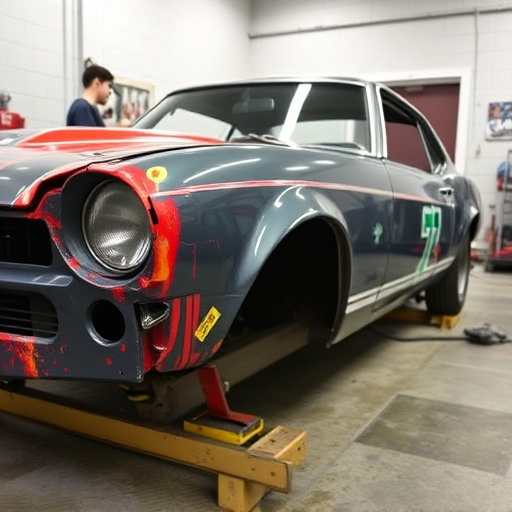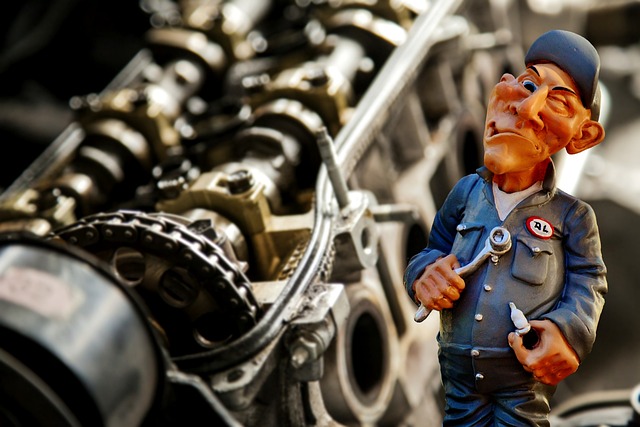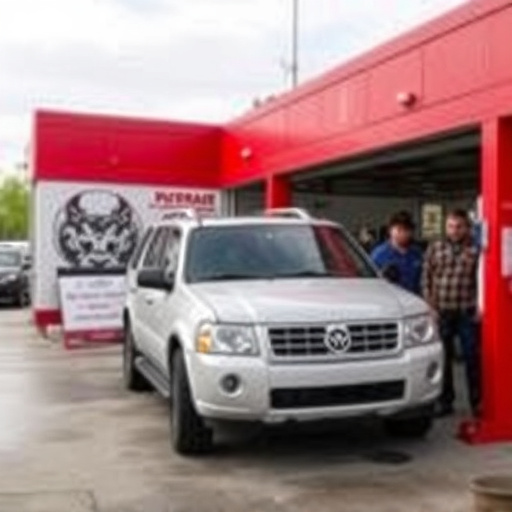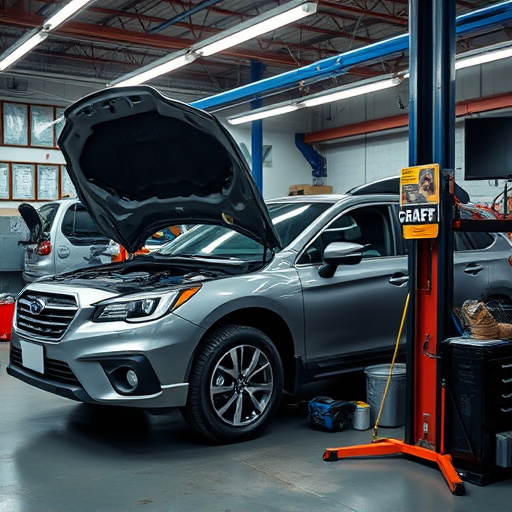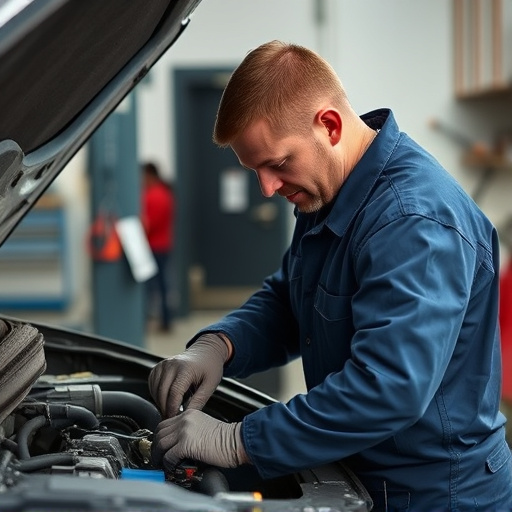The repair approval process is a crucial step for auto repair shops, ensuring quality service and customer satisfaction. Customers bring in their vehicles, and the shop conducts a thorough inspection to create detailed estimates. Effective communication builds trust by explaining work scope, costs, and turnaround time, including potential repainting needs. This collaborative process involves customers, skilled technicians, and insurance providers to streamline repairs, meet industry standards, and facilitate swift approval. Transparent communication is vital for creating a positive experience, especially for complex repairs like Mercedes-Benz, dent removal, or bumper repair.
In the fast-paced world of automotive services, efficient communication during the repair approval process is vital. This article explores how shops navigate this crucial step, ensuring seamless interactions with clients and service providers. We delve into the understanding of the repair approval process, highlighting the distinct roles and responsibilities involved. Additionally, we uncover effective communication strategies that empower shop staff to enhance customer satisfaction and streamline operations, ultimately fostering a transparent and trustworthy environment.
- Understanding the Repair Approval Process
- Roles and Responsibilities During Approval
- Effective Communication Strategies for Shop Staff
Understanding the Repair Approval Process

The repair approval process is a crucial step for any shop specializing in car damage repair or auto painting. It ensures that repairs are done accurately and to customer satisfaction, upholding the reputation of the shop. This process typically begins when a customer brings their vehicle in with an estimated repair cost, after which the shop assesses the damage. The technicians thoroughly inspect the affected areas, including exterior and interior components, to create an accurate, detailed estimate for the client’s approval.
This approval stage is where communication becomes vital. Shops should clearly explain the scope of work, costs involved, and turnaround time to their customers. For instance, when dealing with a scratch repair, the shop might need to discuss the option of repainting specific areas, especially if the damage extends beyond the visible surface. Effective communication not only builds trust but also ensures clients understand their options and make informed decisions regarding their vehicle’s repairs.
Roles and Responsibilities During Approval

During the repair approval process, several roles and responsibilities come into play to ensure a seamless experience for all parties involved. Primarily, the customer is responsible for providing accurate information about the vehicle collision repair needs, including detailed descriptions of damages and expected repairs. They also authorize the necessary work and sign off on the estimated costs, ensuring transparency from the outset.
The collision repair center, or shop, plays a pivotal role in facilitating the approval process. Their team includes skilled technicians who conduct thorough inspections, diagnose issues, and propose effective solutions. Additionally, they collaborate with insurance providers to ensure that all repairs align with industry standards and policy guidelines. This involves submitting detailed estimates, explaining the recommended work, and answering any queries from the insurer to achieve swift approval for vehicle collision repair.
Effective Communication Strategies for Shop Staff

Effective communication is key during the repair approval process, ensuring a smooth experience for both customers and shop staff. When dealing with potential clients seeking mercedes benz repair or other services like dent removal and bumper repair, clear and consistent messaging can set the tone for the entire interaction.
Shop staff should be trained to actively listen to customers’ concerns, providing concise explanations of the proposed repairs and estimated costs. Using simple language, avoiding technical jargon, helps clients understand the process without feeling overwhelmed. Regular updates on the progress of their vehicle’s repair, especially for more complex issues, build trust and demonstrate a commitment to transparency. This approach fosters a positive environment and encourages future business.
Shops play a vital role in ensuring smooth communication during the repair approval process. By understanding the process, defining roles clearly, and adopting effective communication strategies, shop staff can enhance efficiency and customer satisfaction. These practices not only streamline approvals but also foster stronger relationships with clients, ultimately contributing to a successful and transparent repair journey.

